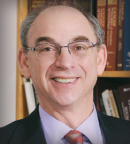Grim, grimmer, and grinding are among the terms reported in the press to describe the current chemotherapy shortage.1,2 And, “it is not going away,” Mark J. Ratain, MD, FASCO, Chief Hospital Pharmacologist, University of Chicago Medicine, told The ASCO Post.
“This is a progressive problem like climate change,” Dr. Ratain remarked. “It will appear on the surface to be better intermittently, as there are temporary solutions, but this is going to be a recurring problem that is not going to end until somebody comes up with the right solution.” That solution, Dr. Ratain proposed, would be to have overall responsibility for adequate supply of chemotherapeutic agents become part of the Cancer Moonshot. “The market has failed, and therefore, in my opinion, the federal government needs to solve this problem,” he said.
No Good Plan B
Among the goals of the Cancer Moonshot is “to reduce the cancer death rate by half within 25 years and improve the lives of people with cancer and cancer survivors.”3 According to Dr. Ratain, that is not going to happen “if we don’t have the drugs we know work.”

“The people who don’t think this [chemotherapy shortage] is a problem probably don’t believe in climate change either.”— Mark J. Ratain, MD, FASCO
Tweet this quote
“There is no good plan B,” Dr. Ratain continued. The chemotherapy shortage “is impacting patients. It is impacting physicians. It is impacting costs, because some of the alternatives to cisplatin and carboplatin that are available are more expensive,” he noted.
“The people who don’t think this is a problem probably don’t believe in climate change either,” he commented. Dr. Ratain is also Director of the Center for Personalized Therapeutics and the Leon O. Jacobson Professor of Medicine at University of Chicago Medicine.
Reliable yet Inexpensive Drugs
The reason most commonly cited for the shortage of reliable yet inexpensive chemotherapy agents, such as cisplatin and carboplatin, is there is little or no profit for drug manufacturers to produce these drugs. “The root cause here is the combination of a relative scarcity of high-quality manufacturing capabilities and the massive price disparity between the drugs that are in shortage and alternative drugs that can be made in the same facilities,” Dr. Ratain pointed out. Companies are set up to make the alternative, more expensive drugs, he noted, because that is their business model.
Resolving the issue should not be left to the private sector, according to Dr. Ratain. “The private sector can be part of the solution, but the federal government must be the architect here to “make sure patients with cancer have these inexpensive drugs,” he stressed.
Maintaining an Emergency Supply
“There should be an emergency supply maintained by the federal government, and that can be decentralized,” Dr. Ratain suggested. The strategy, he added, should be for the federal government to acknowledge that we need to solve this problem. “We need to have a supply that can be provided into the marketplace, to hospitals, physicians, whatever, and we need to figure out how to do that.”
The federal government can “issue requests for proposals for contracts to solve this problem,” he continued. The contracts need not be limited to private industry drug manufacturers but can include academic centers. “There are many pharmacy schools that could make these drugs if they were funded to do so. Then, they could contract with others to maintain them and supply them,” Dr. Ratain explained.
“The government knows how to do this,” he stated. “It just has to want to do it.”
Second or Third Choice
“Many patients are not getting the treatment their physician would like them to have. It might be because a clinical trial that requires carboplatin or cisplatin is not able to get the drug for those enrolling on the trial, and so the patients cannot go on the trial. It also might be that the patient is getting a second- or third-choice drug,” Dr. Ratain said.
“They may be older drugs, well-known therapies that are less effective. In lung cancer, when I was in training, we commonly used chemotherapy regimens that did not -include cisplatin or carboplatin. Carboplatin wasn’t even approved yet. So, we have old treatment regimens that we can roll out, but they are not preferred. They are not as good, but they are better than nothing. Is that what we want to be offering here in the United States while we talk about the Cancer Moonshot?”
Chemotherapy Shortage Does
Not Affect All Cancers
As reported in The New York Times, the lack of effective alternatives is “particularly troubling for patients with ovarian, testicular, breast, lung, and head and neck cancers.”1 Dr. Ratain stated: “It’s not all cancers…. We don’t use cisplatin or carboplatin anymore for melanoma. There are definitely some diseases impacted more than others.”
Different Side Effects
Some of the alternative drugs may have different side effects than the drugs in shortage. “In lung cancer, for instance, many patients would normally get chemotherapy plus one immunotherapy, so carboplatin, pemetrexed, and pembrolizumab,” Christine M. Bestvina, MD, noted in an interview with The ASCO Post. Dr. Bestvina is a medical thoracic oncologist and Assistant Professor at University of Chicago Medicine. “Now, they are getting dual immunotherapy combinations, ipilimu-mab plus nivolumab,” she explained.

“Minimizing waste has been a big target of our pharmacy. Our pharmacy has done an excellent job focusing on that.”— Christine M. Bestvina, MD
Tweet this quote
“And the side effects with them can be different,” Dr. Bestvina continued. “Patients have a much higher rate of having immunotherapy-related side effects, and certainly that is explained to patients. Fortunately, we are also in a position where, based on the data we have, there isn’t a decrease in life expectancy with that regimen,” Dr. Bestvina stated.
“It is important for patients to know all of what we are giving has been given in a clinical trial before. And we can coach patients on reasonable expectations for outcomes and how they may do,” she commented.
Preventable Deaths?
ASCO recommendations call for basing decisions on using antineoplastic agents in limited supply for first intervention on “specific goals of the therapy where evidence-based medicine has shown survival outcome and life-extending benefit in both early and advanced stages.”4 Might these decisions result in otherwise preventable deaths?
“I have not seen that happen yet,” Dr. Bestvina said, but added she expects it could happen in the longer term. According to Dr. Ratain, that is “highly likely,” given that some patients haven’t received the drugs on time, and “we are giving agents other than the preferred agents to many patients. It is hard to measure the impact of that on both mortality and potential side effects, where another drug may be more toxic,” he noted.
Dr. Ratain continued: “If I tell a patient, ‘Well, I’d like to give you cisplatin for your cancer. I think it is the best treatment, but we can only offer you an alternative treatment, and the patient’s cancer recurs in 2 years, did the treatment work?”
New Therapeutic Options
Patients with lung cancer also benefit from new therapeutic options that “have absolutely blossomed over the past several years,” according to Dr. Bestvina. These new options may now serve to mitigate the effect of the chemotherapy shortage.
“If we had this shortage 10 years ago, when all we had was chemotherapy, we would be in deep waters. Fortunately, now, with the increase in the number of targeted therapies that are available, many patients with lung cancer aren’t even getting immunotherapy or chemotherapy. They are taking oral pills that target a specific mutation, such as EGFR or ALK—tyrosine receptor kinase inhibitors—and are not currently being affected by the chemotherapy shortage.”
Minimizing Waste
Among the ASCO recommendations for treating patients during the chemotherapy shortage is minimizing waste.4 “Minimizing waste has been a big target of our pharmacy,” Dr. Bestvina noted. Measures include “rounding off patients’ chemotherapy dosing in a way that isn’t going to affect efficacy but does preserve chemotherapy vials. Our pharmacy has done an excellent job focusing on that.”
DISCLOSURE: Dr. Ratain owns stock and has other ownership interests in SAB Biotherapeutics; has received honoraria from Emerson Lake Safety; has served as a consultant or advisor to Aptevo Therapeutics, Apotex, Genentech, Arvinas, Ayala Pharmaceuticals, Oncovalent Therapeutics, EQRx, Bluebird Bio, Bayer, Cantex Pharmaceuticals, Eagle Pharmaceuticals, and EMD Serono; and has received institutional research funding from AbbVie, Genentech/Roche, Xencor, Corvus Pharmaceuticals, Bristol Myers Squibb, and Incyte. Dr. Bestvina has received institutional research funding from AstraZeneca and Bristol Myers Squibb; has served as an advisor or consultant to AstraZeneca, Bristol Myers Squibb, CVS, Genentech, Janssen Biotech, Jazz, Johnson & Johnson, Novartis, Pfizer, Regeneron, Sanofi, Seattle Genetics, and Takeda; and has served on a speakers bureau for Merck.
REFERENCES
1. Jewett C: How the shortage of a $15 cancer drug is upending treatment. The New York Times, June 26, 2023. Available at www.nytimes.com/2023/06/26/health/cancer-drugs-shortage.html. Accessed July 25, 2023.
2. Allen A: Drugmakers are abandoning cheap generics, and now U.S. cancer patients can’t get meds. Los Angeles Times, June 21, 2023. Available at www.latimes.com/science/story/2023-06-21/drugmakers-are-abandoning-cheap-generics-and-now-u-s-cancer-patients-cant-get-meds. Accessed July 25, 2023.
3. National Cancer Institute: Cancer Moonshot. Available at www.cancer.gov/research/key-initiatives/moonshot-cancer-initiative. Accessed July 25, 2023.
4. American Society of Clinical Oncology: Clinical Guidance. Available at old-prod.asco.org/practice-patients/practice-support/drug-shortages/clinical-guidance. Accessed July 25, 2023.

